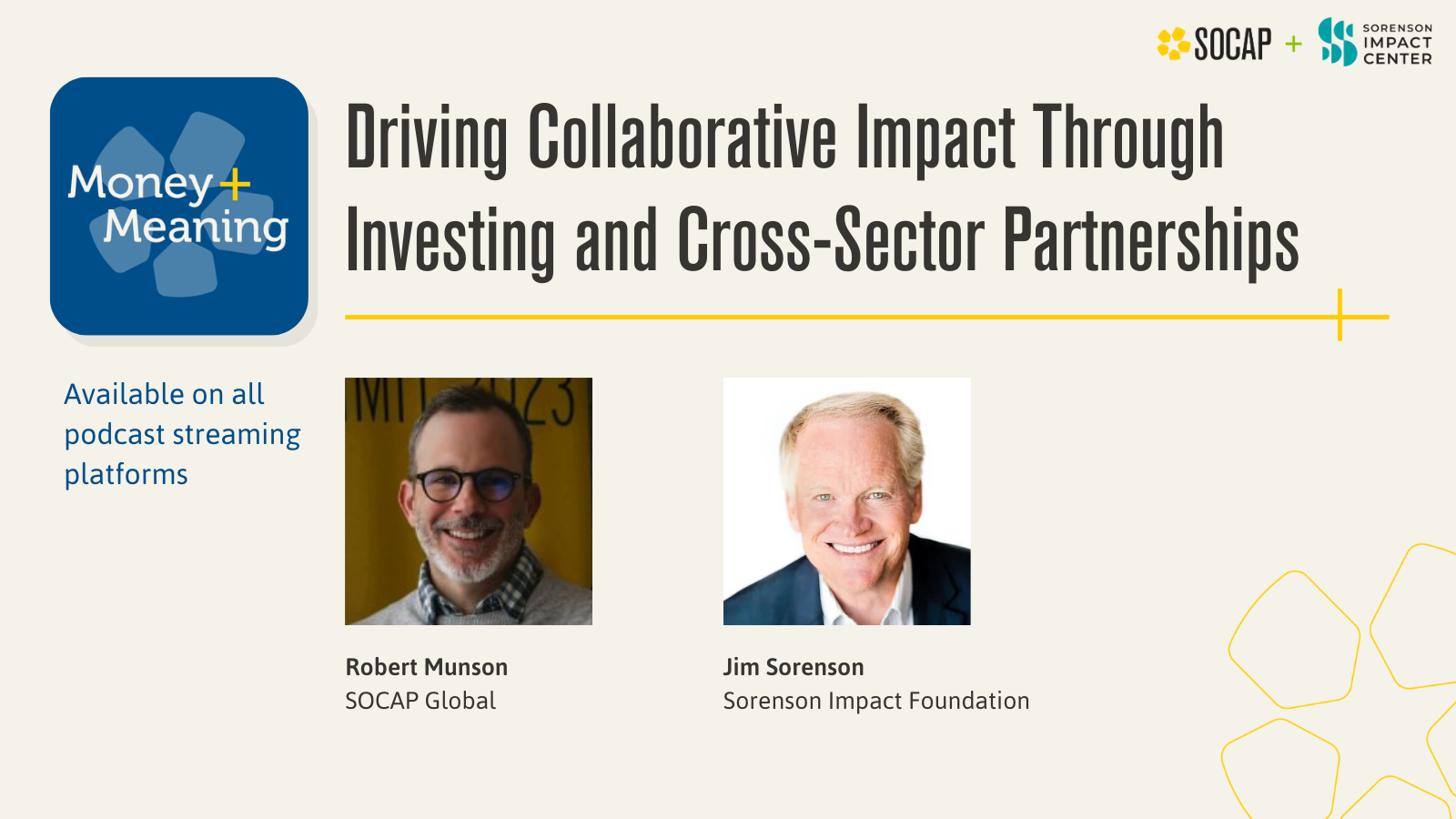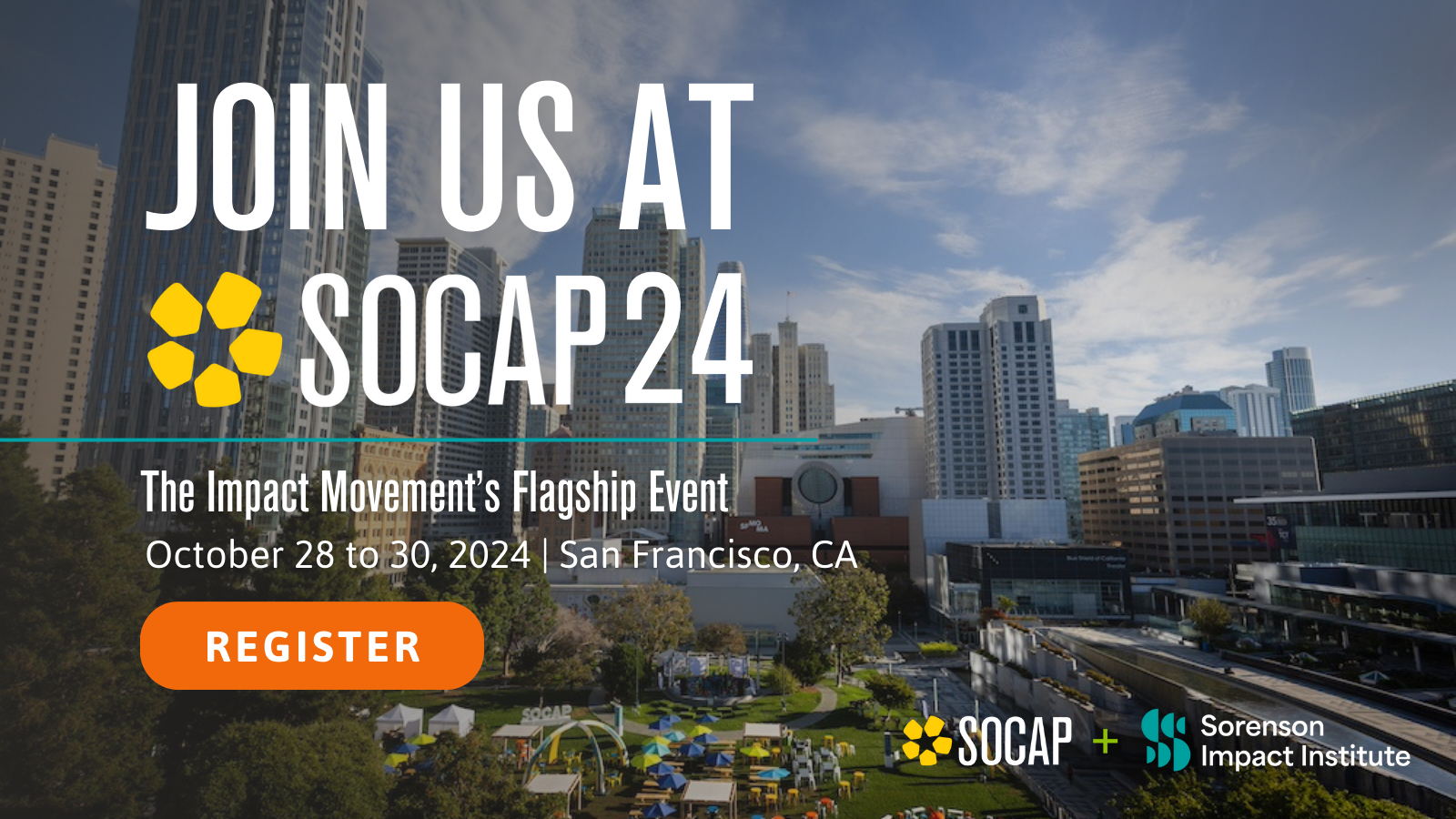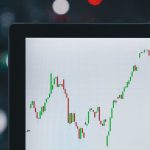A Money + Meaning Podcast with Jim Sorenson and Robert Munson
With a record of strong growth over the last decade, the impact investing field has the opportunity to lead in new ways and build on that promise by attracting new investors, organizations, and partnerships for action to drive and amplify positive change.
That’s part of the message that Jim Sorenson, Founder of the Sorenson Impact Foundation, shares with Robert Munson, President of SOCAP Global, in a new Money + Meaning podcast. In a Q&A session, they explore the importance of cross-sector events like SOCAP23 and the power of leadership and collaboration for positive social impact through policy, enterprise, and investment.
Since providing an endowment to create what is now the Sorenson Impact Institute at the University of Utah’s David Eccles School of Business, Sorenson has witnessed and nurtured the growth of the field of impact investing. Last year, the Sorenson Impact Institute took another step in its impact journey by partnering with SOCAP Global and merging the Institute’s management and multidisciplinary impact expertise with SOCAP Global’s annual conference. The partnership reflects Sorenson’s belief in the importance of bringing together varied sectors — government, philanthropy, investors, academia — for social good. “The key to that is alignment and building mutual respect and trust within these organizations,” he said. “That’s the playbook that we work from.”
One real-world example that continues to create ripples of impact in Utah is Opportunity Zone legislation, which Sorenson said involved policymakers, private investors, and people from the affected communities. “There are many opportunities where good policy that utilizes the principles of impact investing can be put into play,” he said. “Community has to be at the core of this. … When you do that, nonprofits are often engaged, and so are other funders. It’s a good example of the type of collaboration that has moved tens of billions of dollars into distressed communities.”
It also shows how impact investing can help create partnerships that deepen the work of social enterprises and other organizations. “You’re meeting the objectives of all stakeholders or investors in a collaborative way and addressing a problem that wouldn’t have been addressed otherwise — that is the real promise and opportunity,” Sorenson said.
He credits his collaborative, innovative leadership style to the examples that each of his parents demonstrated. Sorenson’s father was a business leader who embraced entrepreneurship and innovation; his mother demonstrated compassion, inclusion, and building a sense of belonging and faith in others. At the Institute and beyond, Soreson taps into the traits his parents demonstrated to build strong teams. “The key to scaling any kind of business or enterprise is building new leaders and recognizing the qualities in others and having faith and giving them opportunity for leadership,” he said.
In Utah, the Institute capitalizes on the state’s strengths in innovation, entrepreneurship, and volunteerism to amplify its impact investment work and positive social impact. It’s a model that can serve as an example for other academic institutions and states. “The leadership at the University of Utah … recognized the value around impact investing,” Sorenson said. “There are a lot of things the university can do for impact for good. … We created an environment that could be a formula that could work .”
While the field of impact investing has grown in the last decade, so have social and environmental challenges around the world. Sorenson said working with university students at the Institute reinforces his “glass half full” view of a better future. “Where I’m encouraged is in the next generation and the importance they place on social good,” he said. “The work they do, what drives them to put in extra hours. … They are a motivated and intelligent next generation.”
In parallel, the work of the Sorenson Impact Foundation to expand impact investing opportunities and develop the market has touched more than 600 million people, he said. “We have established an advisory to help others to do the same thing because we know it can be done. And we see the interest and the desire of others to do the same,” he said. “This gives me hope.”
Munson said the growth of impact investing also has sparked additional events for people in the field. SOCAP23 continues to serve a unique role as a “big tent” that welcomes new faces and viewpoints each year. “It maintains this balance of reflecting the mainstream of impact while also being a space for new ideas and new innovations,” Munson said. “For the field to grow, the market to grow, we need new people.”
Listen to the full Money + Meaning podcast to learn more about the people who influenced Sorenson’s leadership style, why he sees ESG factors as important measures of investor risk, and how impact goals can help bridge partisan divides.
At SOCAP23, Sorenson will be part of a session on “Unlocking Capital on the Sidelines: Activating Untapped Assets for Impact” with Tracy Palandjian, CEO and Co-Founder of Social Finance; Elaine Martyn, Senior Vice President at Fidelity Charitable, and moderator Fran Seegull of the U.S. Impact Investing Alliance. The session starts at 3 p.m. PT on October 23 in the Forum at Yerba Buena Center for the Arts.
Don’t miss out! Subscribe to Money + Meaning on Apple Podcasts, Stitcher, TuneIn, Spotify, or anywhere else you find podcasts.
Listen to more episodes of Money + Meaning here.
Money + Meaning is the official podcast of SOCAP. The series aims to expand the conversation around impact investing and strategies to finance and support social change while stimulating innovative and valuable new partnerships across sectors.






